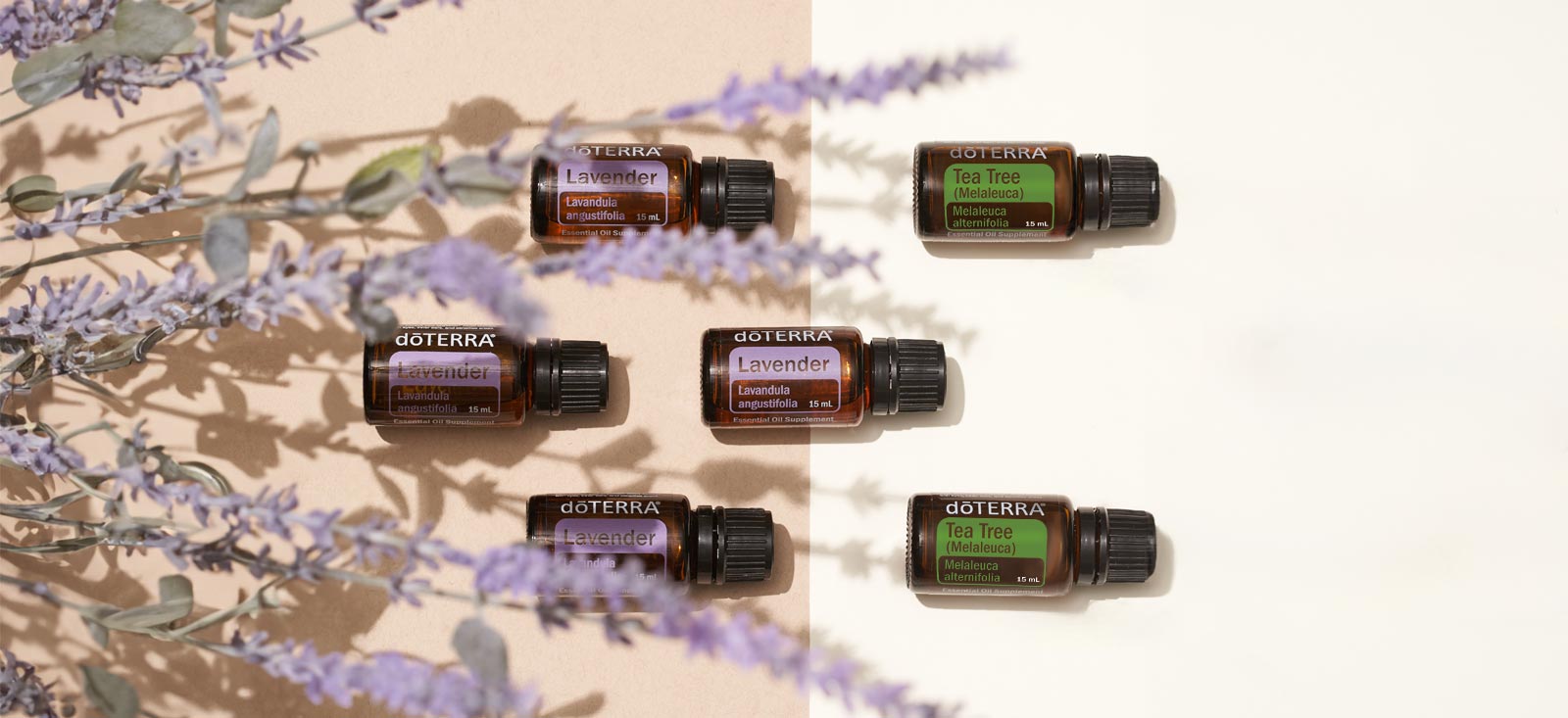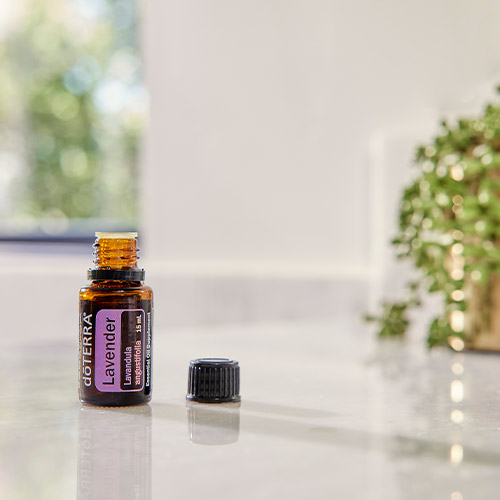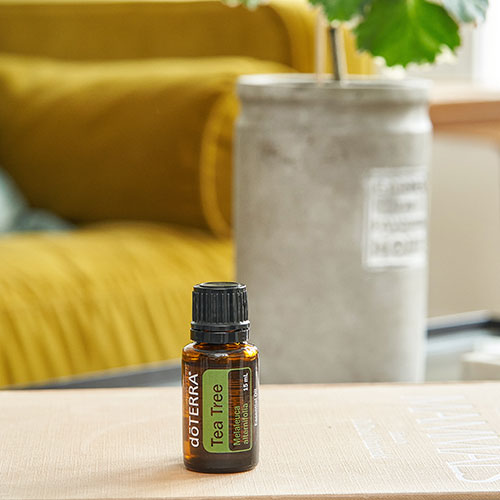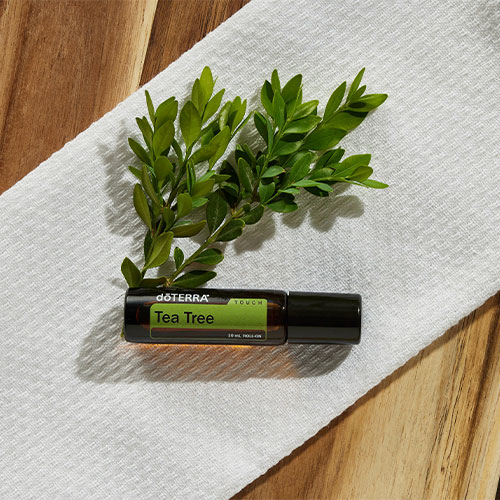Origen: un derivado latino.
Significado "regalo de la tierra."
-
Compra
- Ver Compra Inicio
- Bienestar Fundamental
- Nuevos Productos
- Todos Nuestros Productos
- Aceites esenciales
- Personaliza y Ahorra
- MetaPWR
- Línea Abode
- Cuidado Personal
- Protección Solar
- Suplementos
- Kits y colecciones
- Literatura
- Ofertas especiales
- Difusores y Accesorios
- Productos Elegibles para HSA/FSA
- doTERRA Healing Hands
-

-
Nuestra Historia
- Ver Nuestra Historia Inicio
- Lo que hacemos ...
- Lo que hacemos ...
- Porque lo hacemos ...
-
dōTERRA[doh-teh-ruh]
Lavanda y Árbol de Té: Desmintiendo Mitos sobre la Ginecomastia


¿Qué Dicen las Personas sobre los Aceites Esenciales y la Ginecomastia?
En los últimos años, han surgido preocupaciones entre los padres sobre los aceites esenciales de Lavanda y árbol de té y su posible conexión con la ginecomastia. La ginecomastia se refiere al crecimiento prematuro de los senos en niños pequeños y adolescentes.
Estas preocupaciones provienen de tres informes de casos reportados hace más de 15 años en la Revista de Endocrinología Clínica y Metabolismo, los cuales sugerían una posible asociación entre los productos de lavanda y la telarquia prematura (TP) y ginecomastia prepuberal (GP) en niños. Desafortunadamente, la cobertura sensacionalista de los medios ha llevado a la desinformación y la alarma innecesaria.
Los informes de casos no son estudios clínicos en humanos diseñados para responder preguntas. Son simplemente un método para plantear preocupaciones. La correlación no siempre significa causalidad, y problemas metodológicos como el análisis inadecuado de la composición de los aceites esenciales y la falta de datos clínicos humanos adecuados plantean dudas significativas sobre la validez de una asociación entre los aceites esenciales y el desarrollo prematuro de los senos.
También es importante señalar que ninguna de las preocupaciones encontradas en los informes de casos involucraba aceites esenciales de doTERRA.
Otros estudios han explorado desde entonces el vínculo entre la exposición a la lavanda y la GP, pero es crucial abordar estos hallazgos con cautela. Una inspección más detallada revela deficiencias significativas en estos estudios. Por ejemplo, la falta de un análisis químico integral y la posibilidad de químicos sintéticos en los productos probados plantean dudas sobre la validez de sus conclusiones.
¿Qué Dice la Evidencia sobre la Actividad Estrogénica?
Un artículo publicado en 2022 en la Revista Internacional de Pediatría y Medicina del Adolescente, titulado “Prevalencia de Trastornos Endocrinos entre Niños Expuestos a Aceite Esencial de Lavanda y Aceite Esencial de Árbol de Té,” ha confirmado inequívocamente que no existe tal asociación con estos aceites esenciales. Puedes revisar el artículo aquí.
El Dr. Scott Johnson, director de investigación y fundamentación de doTERRA, ofrece la siguiente perspectiva sobre los resultados del estudio: “El estudio involucró a 556 niños de entre dos y 15 años, con solo nueve casos de trastornos relacionados con la disrupción endocrina registrados.”
El Dr. Johnson continúa, “Los investigadores encontraron que los nueve casos identificados entre la población del estudio eran consistentes con las normas poblacionales,” enfatizando que estas ocurrencias estaban en línea con lo que se esperaría, independientemente de la exposición a aceites esenciales.
Además, señala, “No se observaron casos de ginecomastia prematura,” destacando la ausencia de esta condición en el grupo de estudio.

El Dr. Johnson afirma que no hubo un riesgo aumentado de trastornos endocrinos entre los niños que estuvieron rutinariamente expuestos a aceites esenciales en comparación con aquellos que no lo estuvieron. “La prevalencia media a lo largo de la vida de la GP en la población general es del 2.5%, y este estudio mostró una prevalencia del 0% entre los niños expuestos regularmente a los aceites esenciales”.
El estudio concluyó que los niños expuestos regularmente a los aceites esenciales de lavanda o árbol de té enfrentaban el mismo riesgo de trastornos endocrinos que aquellos no expuestos. Esto desafió eficazmente los conceptos erróneos sobre el impacto de estos aceites en la salud endocrina.
En ausencia de datos clínicos humanos definitivos, los científicos pueden usar datos in vitro (cultivo celular) y de animales para preguntarse si hay alguna evidencia biológica que respalde los datos de los informes de casos previamente reportados. Un ejemplo de este enfoque es el ensayo uterotrófico en ratas. Este ensayo es ampliamente considerado el modelo animal estándar de oro para mostrar si una sustancia causa actividad estrogénica.
Se realizó un estudio de terceros y los resultados mostraron que el aceite esencial de lavanda no exhibía actividad estrogénica.

Los estudios científicos más recientes sugieren una posible conexión basada en métodos in vitro (de laboratorio) en lugar de evaluaciones in vivo (en organismos vivos), lo que podría limitar la aplicabilidad de los hallazgos. Además, las preocupaciones sobre los efectos potenciadores de la penetración de los componentes de los aceites esenciales, particularmente los terpenos, subrayan la importancia de considerar la composición química más amplia de los productos que contienen aceites esenciales.
En cuanto a la actividad estrogénica de estos aceites, el estudio mencionado anteriormente, considerado el estándar de oro, ha demostrado que el aceite esencial de lavanda no presenta tal actividad. Del mismo modo, no hay evidencia convincente que respalde la noción de que el aceite de árbol de té altere las hormonas.
Hay un punto importante que no es claramente entendido por los científicos que realizan la investigación, así como por aquellos que leen las conclusiones extraídas de estos estudios. La mayoría de las empresas de aceites esenciales venden productos adulterados con compuestos sintéticos y otras sustancias. La magnitud de la adulteración dentro de la industria debería cambiar el enfoque de los aceites esenciales en sí a los otros ingredientes con los que se combinan. La calidad importa.
La lavanda y el árbol de té se encuentran en docenas de productos comerciales de cuidado personal que contienen químicos nocivos: champús y otros productos para el cabello, colonias y perfumes, artículos para el cuidado de la piel, y la lista continúa. Muchos de estos estudios no prueban aceites esenciales puros de lavanda o árbol de té, lo que genera resultados confusos sobre qué es realmente lo que está causando posibles conexiones de ginecomastia con estos productos.
El Veredicto: Aceites Esenciales y Salud Hormonal
Entonces, ¿dónde nos deja esto en el debate sobre la lavanda, el árbol de té y la salud hormonal? La evidencia científica, tal como está, no vincula de manera convincente los aceites esenciales de lavanda o árbol de té con las alteraciones hormonales.
En cambio, apunta a un problema más significativo: la calidad y pureza de los productos de cuidado personal. Como defensores del bienestar natural, es vital tomar decisiones informadas sobre los productos que usamos, priorizando aquellos que contienen solo aceites esenciales puros y de alta calidad.
Si bien las preocupaciones en torno a los aceites de lavanda y árbol de té merecen atención, la evidencia que respalda un vínculo definitivo con la alteración hormonal sigue siendo inconclusa. Además, ahora hay evidencia científica significativa que pone en duda cualquier vínculo entre los aceites esenciales de lavanda o árbol de té y la ginecomastia prematura, la alteración hormonal o la disfunción endocrina.
doTERRA siempre alienta a los clientes a priorizar productos con aceites esenciales de alta calidad y origen constante porque los productos de aceites esenciales de baja calidad suelen estar adulterados con compuestos sintéticos.
Cuando tú y tus seres queridos usan productos de doTERRA, incluidos los aceites esenciales de Lavanda y Árbol de Té, puedes confiar en que es la opción más pura y de mayor calidad en el mercado. Los aceites esenciales de doTERRA son el estándar ideal con el cual se comparan todas las demás compañías, y esto ha sido demostrado repetidamente en investigaciones revisadas por pares por científicos del Centro Nacional de Pruebas de Productos Naturales en la Facultad de Farmacia de la Universidad de Mississippi.

Lauren Busch, directora de educación sobre productos en doTERRA, dice: “Lo que debemos aprender de la investigación inicial sobre la lavanda o el árbol de té es que los aceites adulterados y los productos que contienen fragancias sintéticas que se anuncian como aceites esenciales puros pueden impactar negativamente en el cuerpo”.
La consistencia de los compuestos químicos clave en el aceite de Lavanda de doTERRA es similar a la consistencia de los ingredientes en productos relacionados con la salud producidos en masa. Esa consistencia es clave para ofrecer resultados predecibles y confiables, lo cual es importante tanto para los consumidores como para los investigadores. doTERRA y sus productos de aceites esenciales puros, consistentes y potentes están allanando el camino para nuestra próxima fase de investigación clínica en humanos e innovación de productos.
Haz clic a continuación para obtener más información sobre algunos de los estudios emergentes realizados específicamente sobre el aceite esencial de Lavanda de doTERRA.
-
Copiado al Portapapeles
- Descargar

